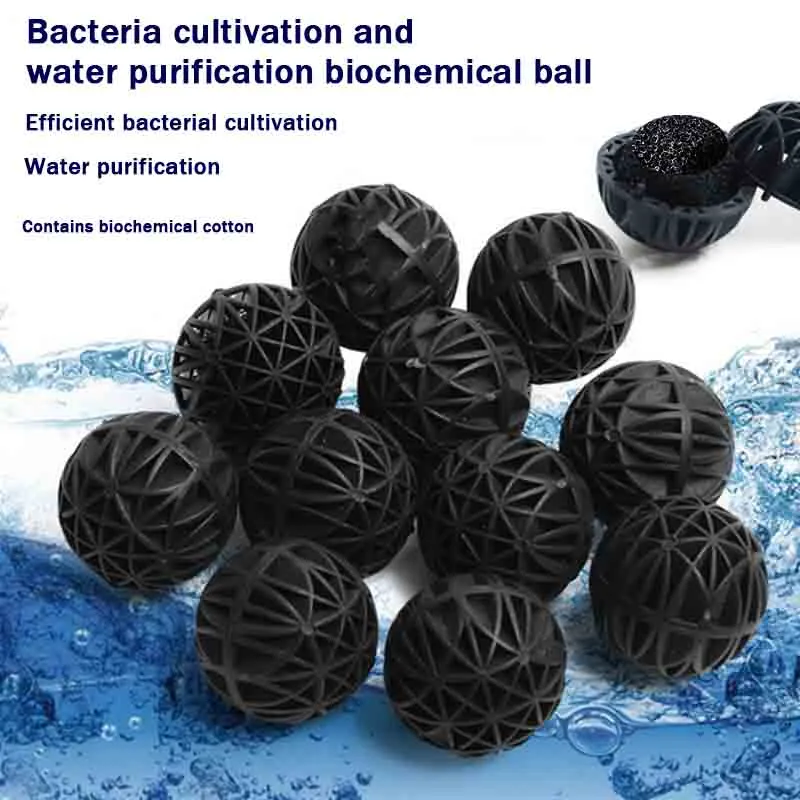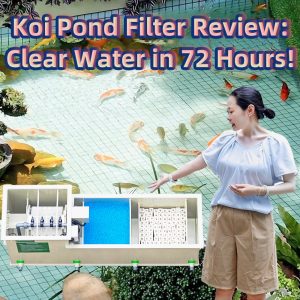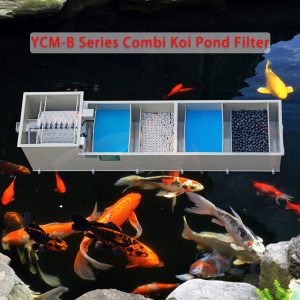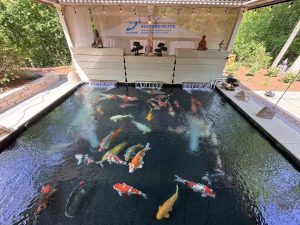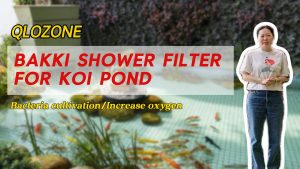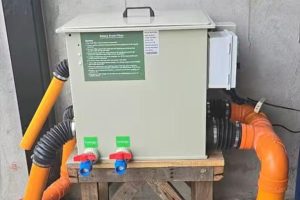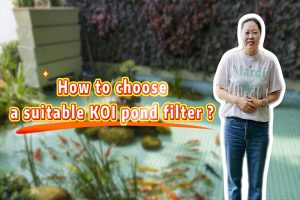Many people dream of owning a beautiful aquarium or a beautiful koi pond. It is so pleasing to see beautiful and graceful fish swimming in the water. But it is not so easy to maintain good water quality. In order to keep the aquarium or fish pond clean, many people spend a lot of effort. They use many methods to filter, just to make the fish survive better.
In particular, the biochemical balls and ceramic rings are very interesting. These two different filter media have similar functions and can purify water. Let’s talk about these two in detail and see which one is more suitable for your fish pond.
The biochemical ball is a spherical filter medium with a gap in the middle. It can be used to filter water in fish ponds or aquariums to ensure the safety of fish.
These bio-balls are carefully designed with gaps in the middle to provide a surface for beneficial bacteria to attach to. Beneficial bacteria can quickly multiply inside the balls and remove nitrites and ammonia from the water. These gaps provide a larger surface area, an ideal place for bacteria to grow without affecting other parts of the pool tank.
Advantage:
1. Lightweight and easy to install
The biochemical ball is made of plastic. It is lightweight. It is very convenient to install and replace. It is suitable for various types of filtration systems.
2. Wider water flow channel
The design of the biochemical ball is very friendly to water flow. It is very convenient for water to flow through. The biochemical ball can help increase oxygen supply and promote bacterial growth and metabolic activities.
3. Durable
The material of the bio-ball is durable and will not disintegrate quickly.
4. Suitable for high-flow filtration systems
Bio-balls perform well in high-flow filtration systems. They can handle large amounts of water flow and quickly remove harmful substances in the water.
Defect:
1. They only house nitrifying bacteria.
2. They require regular maintenance to prevent the accumulation of foreign matter.
Ceramic Ring
Ceramic rings are also called bio rings. They are small pieces of unglazed ceramic. There are countless tiny perforations all over the surface of the ceramic ring, both inside and outside. They provide a perfect place for beneficial bacteria to live. They are usually white and sometimes mistaken for decoration in aquariums.
Most ceramic rings have a hole in the middle, in the shape of a ring. This allows water to flow through the ring, continuously providing oxygen and food for the beneficial bacteria to grow. The bacteria that grow in the ceramic rings usually fix ammonia and nitrites. So if not controlled, these harmful substances will harm the fish.
Advantage:
1. Large surface area
The porous structure of the ceramic ring provides a large surface area. It allows beneficial bacteria to attach and grow. It decomposes organic matter and transforms harmful substances such as nitrite, etc., and then achieves the effect of purifying water quality.
2. Strong durability
Ceramic rings are made of hard material. They are not easy to break. They have a long service life. They can maintain the filtering effect for a long time.
3. Simple maintenance
Generally speaking, ceramic rings do not need to be replaced frequently. Just clean them regularly to remove surface deposits. Maintenance is relatively simple.
4. Physical filtration
In addition to the biological filtration function, the porous structure of the ceramic ring can also capture large particles of impurities and play a physical filtration role.
Defect:
The porous and central holes are easily clogged. Regular maintenance is required. Otherwise, the speed of cleaning water will be slow.
Which filter media is best for your koi pond or aquarium?
The choice of media depends on many factors, such as the size of the fish pond, local water quality, the design of the filtration system, and personal preferences.
1. The size and water volume of the fish pond
If your koi pond or water tank is large and has a lot of water, then the ceramic ring may be more suitable for you. Because it has a larger surface area, it can support the growth of more beneficial bacteria, thereby improving the filtration efficiency. For small fish ponds or water tanks, use biochemical balls, which are lighter and easier to install.
2. Local water quality
For fish ponds with poor local water quality that need frequent cleaning, the durability and simple maintenance of ceramic rings are even more advantageous. Biochemical balls are more suitable for systems with fast water flow and the need for rapid water quality treatment.
3. Filtration system design
If your filtration system design allows for a larger media capacity, then using ceramic rings is a very good choice. However, if it emphasizes smooth water flow and high oxygen supply, biochemical balls are more suitable.
4. Personal preferences
Some people have their own personal preferences when choosing filter media. For example, some people prefer the stability of ceramic rings, which can even be used as decorations. Some people prefer the convenience and efficiency of biochemical balls.
After understanding the characteristics of these two filter media, which one would you choose? The filtering effect of the two is basically the same. Maybe the ceramic ring can support both nitrifying bacteria and denitrifying bacteria at the same time, which is a small advantage. But it is easy to clog the pores and need to be cleaned frequently, which is also a small disadvantage. But in any case, both media can complete the filtering task excellently. Both products are very cheap. I believe that no matter which one you choose, it will not be a headache for you. You can still get the results you want.

